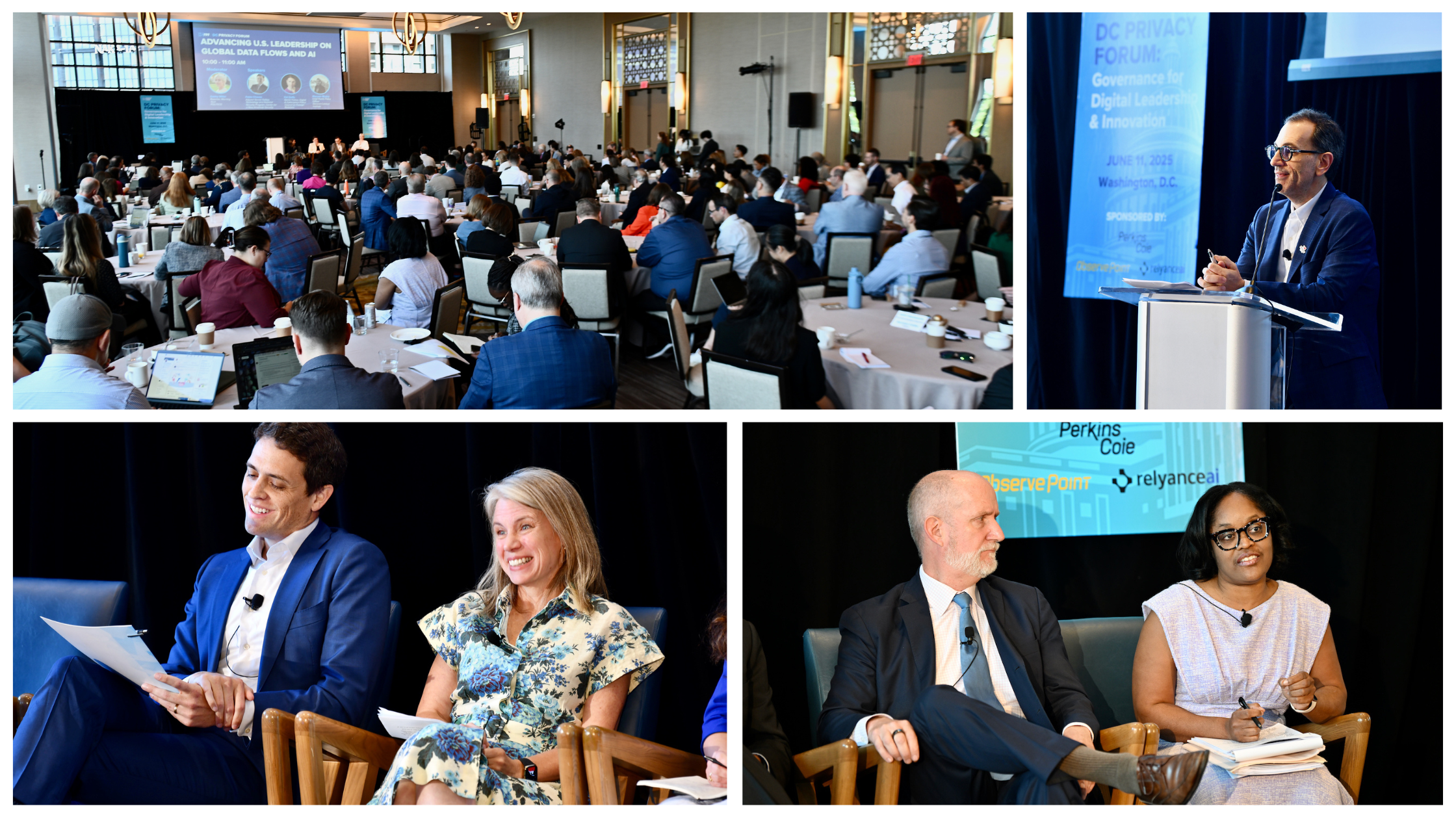Showing results for code2024 xped welcome bonus promo code finland

Ai,Ethics,Or,Ai,Law,Concept.,Developing,Ai,Codes,Of
ai,ethics,or,ai,law,concept.,developing,ai,codes,of

Privacy Enhancing Technologies Workshop Proceedings
[…] I S SU E BRIE F: U .S . PO LIC Y ○ Queries persist for a maximum of 2 minutes before dissolving (the key point and bonus feature of this process/tech is that it is not permanent), which aligns with the spirit of data localization requirements. How do you weigh the benefit of […]

Futuristic,Blue,Dots,Background.,Abstract,Glitch,Background.,Corrupted,Binary,Code.
futuristic,blue,dots,background.,abstract,glitch,background.,corrupted,binary,code.

Meet Bianca-Ioana Marcu, FPF Europe Managing Director
FPF is pleased to welcome our colleague Bianca-Ioana Marcu to her new role as Managing Director of FPF Europe. With extensive experience in privacy and data protection, she takes on this responsibility at a pivotal moment for digital regulation in Europe. In this blog, we will explore her perspectives on the evolving privacy landscape, […]

COPPA 2.0 Redline – June 2025
[…] r e g ula tio ns is su e d und er se ctio n 650 2 of th is tit le . ( 3 ) E XPED IT ED RES P O NSE TO REQ UES TS T he Com mis sio n sh all act up on re q ue sts fo […]

Annual DC Privacy Forum: Convening Top Voices in Governance in the Digital Age
[…] Privacy in the AI Era After a networking lunch, attendees retook seats for the event’s second half. Moderator Dr. Gabriela Zanfir-Fortuna, FPF’s Vice President for Global Privacy, welcomed back everyone for “Competition/Data Protection in an AI World.” Joined by Maureen Ohlhausen, Partner at Wilson Sonsini and Peter Swire, FPF Senior Fellow, and J.Z. Liang […]

FPF-Sponsorship Prospectus-Singles-Brussels Privacy Symposium-R2 (2)
[…] PRIVACY SYMPOSIUM W ELCOME NETWORKING RE CEPT ION • $ 6,5 00 • 3 2 ava ilable Support the Brussels Privacy Symposium with a sponsorship of our Welcome Networking Reception on the evening before the Symposium. Seize the opportunity to sponsor an evening of cocktails, dinner, and networking with some of the brightest minds […]

FPF-Sponsorship Prospectus-Singles-Brussels Privacy Symposium-R2 (2)
[…] PRIVACY SYMPOSIUM W ELCOME NETWORKING RE CEPT ION • $ 6,5 00 • 3 2 ava ilable Support the Brussels Privacy Symposium with a sponsorship of our Welcome Networking Reception on the evening before the Symposium. Seize the opportunity to sponsor an evening of cocktails, dinner, and networking with some of the brightest minds […]

FPF-Sponsorship Prospectus-Singles-Brussels Privacy Symposium-R2 (2)
[…] PRIVACY SYMPOSIUM W ELCOME NETWORKING RE CEPT ION • $ 6,5 00 • 3 2 ava ilable Support the Brussels Privacy Symposium with a sponsorship of our Welcome Networking Reception on the evening before the Symposium. Seize the opportunity to sponsor an evening of cocktails, dinner, and networking with some of the brightest minds […]

FPF-Sponsorship Prospectus-Singles-Brussels Privacy Symposium-R2 (2)
[…] BRUSSELS PRIVACY SYMPOSIUM W ELCOME NETWORKING RE CEPT ION • $6, 500 • 2 1 ava ilable Support the Brussels Privacy Symposium with a sponsorship of our Welcome Networking Reception on the evening before the Symposium. Seize the opportunity to sponsor an evening of cocktails, dinner, and networking with some of the brightest minds […]
